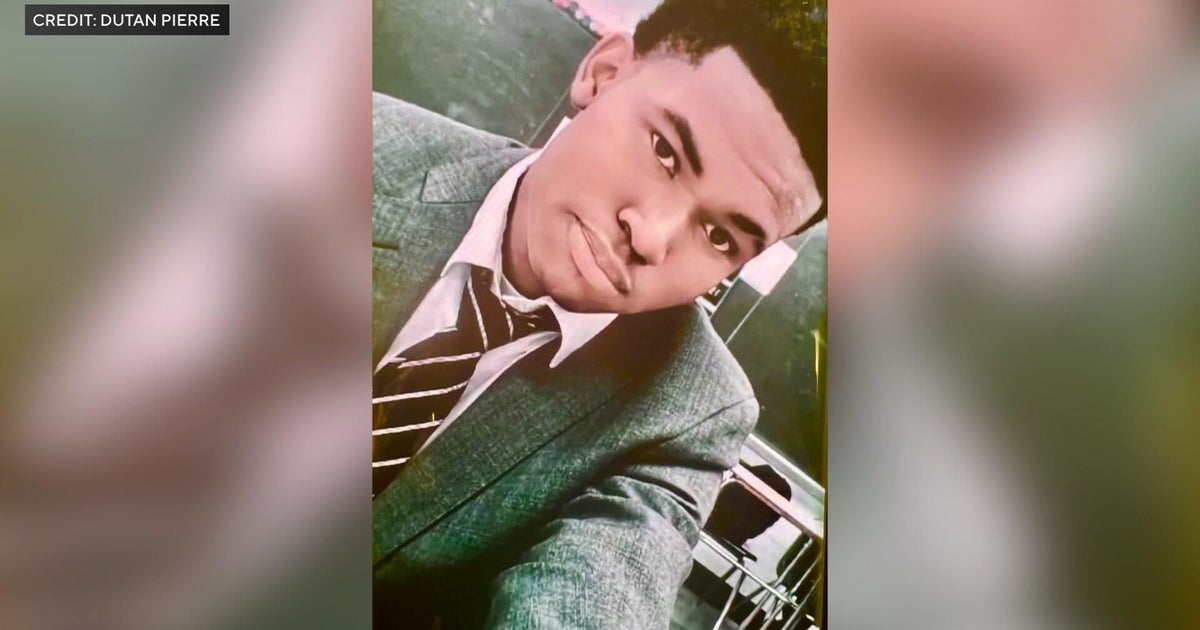Columbia University trustee calls on board to comply with Trump administration demands
A member of the Columbia University Board of Trustees is calling on the school to comply with the Trump administration's demands regarding alleged antisemitism on campus and Title VI of the Civil Rights Act.
In a letter delivered Monday and obtained by CBS News, Dr. Shoshana Shendelman also demanded a formal apology from acting school President Claire Shipman and board co-chairs David Greenwald and Jeh Johnson.
"The conduct which has been exhibited by Columbia leadership in recent months — particularly the failure to decisively address antisemitism on campus — demonstrates a disturbing lack of moral clarity and poses a significant threat to the safety and well-being of Jewish students, faculty, and the broader community of Columbia University," Shendelman wrote.
"It is evident that the ongoing failures have resulted in substantial legal and financial ramifications, and our university's reputation has been tarnished for the foreseeable future. Unequivocally, this is the direct consequence of Columbia's failure to adhere with Title VI of the Civil Rights Act," she added.
That section of the law prohibits discrimination on the basis of race, color or national origin by organizations that get federal funds.
"Columbia must fully accept the Trump administration's demands regarding antisemitism and Title VI compliance," the letter continued. "It is the right thing to do for our students, and it is undeniable that the current situation at Columbia is untenable. Thus, our Board must work promptly and unconditionally with the United States Federal government."
The letter comes on the heels of the release of text messages Shipman wrote in 2023 and 2024 suggesting that Shendelman, who is Jewish with Iranian ancestry, be removed from the board.
In the texts, Shipman also pushed for the addition of an Arab trustee to the board, saying, "We need to get somebody from the middle east [sic] or who is Arab on our board. Quickly I think. Somehow."
The texts were released last week by New York Republican Rep. Elise Stefanik, chair of the House Committee on Education and Workforce, which has been investigating antisemitism on college campuses.
Shendelman asked in her letter to be "renewed for a second term as a Trustee, should I elect to continue my service" and requested a written response from the board within 48 hours.
A Columbia spokesperson said in a statement Thursday morning that Shipman "has apologized to Dr. Shendelman and others regarding internal communications that members of Congress chose to make public."
"Columbia University leadership — including the acting president and Board co-chairs — are deeply committed to combatting antisemitism on campus and securing Columbia's future as a safe and welcoming place for all community members," the spokesperson said. "They remain fully focused on ongoing discussions to reach an agreement with the Joint Task Force to Combat Antisemitism to restore the University's critical partnership with the federal government."
In a letter to Shendelman on Wednesday, Greenwald and Johnson, the Board of Trustees co-chairs, wrote that they are "deeply sorry about the internal communications that referred to you, that certain members of Congress chose to make public."
"As we conveyed to you when we last spoke, we value your viewpoints and experiences around antisemitism at Columbia and beyond. The viewpoints you have expressed in our internal board of trustee discussions have been impactful and significant," Greenwald and Johnson wrote. "We are at a crucial stage in our negotiations with the federal government to resolve its pending investigations, and we are actively working to try to reach a settlement of those matters soon. Most important, we are both fully committed to combating antisemitism at Columbia, without regard to the pending investigations."
Shendelman's letter and her request for a new term follow controversy in her professional life outside Columbia.
In December, she was replaced as CEO of pharmaceutical company Applied Therapeutics, according to a with the Securities and Exchange Commission.
The move came after the Food and Drug Administration rejected the company's application for a new drug. The agency wrote in a to Shendelman in November that the company didn't appear to adhere to "applicable statutory requirements" and regulations regarding "the conduct of clinical investigations." According to the nonprofit news site , Shendelman defended the drug, govorestat, on a podcast, saying there weren't any "patient safety issues or any patient safety concerns."
Shendelman and Applied Therapeutics were named in a shareholder lawsuit filed in federal court in New York in December. The suit alleges that they knew about the issues that led the FDA to reject the drug, but didn't disclose them to investors and instead made "positive representations" publicly about the interactions with the FDA. Shendelman and the company deny any wrongdoing, The Intercept reported.
The Education Department threatened Columbia's accreditation last month, saying the school failed to address antisemitism on campus and harassment of Jewish students after the Oct. 7, 2023, attack on Israel by Hamas. The department's civil rights office notified the Middle States Commission on Higher Education — which accredits U.S. colleges and universities — that Columbia was out of compliance with antidiscrimination laws.
A Columbia spokesperson responded by telling CBS News the school "is aware of the Department of Education's concerns" and has "addressed those concerns directly with Middle States," referring to its accreditor. The spokesperson also said Columbia is "deeply committed to combating antisemitism on our campus" and is "continuing to work with the federal government to address it."
In March, the Education Department canceled $400 million in grants to and contracts with Columbia, citing "the school's continued inaction in the face of persistent harassment of Jewish students." The school said it would work with the Trump administration to get that funding restored.
The administration also of Columbia's federal contracts.
Columbia has more than $5 billion in federal grant commitments.
The school has been a hotbed of controversy over hostilities in Gaza.
Last month, Mahmoud Khalil, a prominent Palestinian activist who helped lead protests on campus in the spring of 2024, was released from an Immigration and Customs Enforcement detention facility in Louisiana after a federal judge ordered the move while his immigration proceedings play out.
Khalil was in custody for more than three months. The Trump administration is attempting to deport him due to "foreign policy" concerns.




